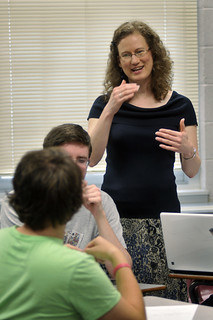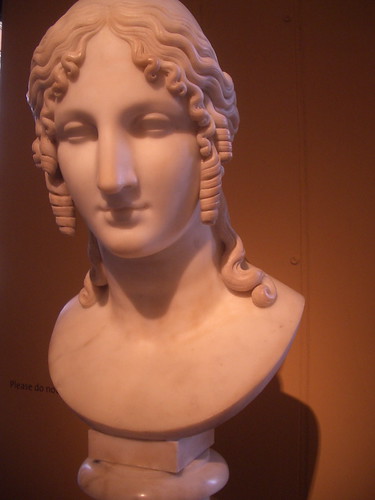As explained in the little article linked above, imitation can be used on a grand scale or a small one. Today I want to share a brief exercise from the first quarter of the course Composition II that Chris Finnegan and I developed for Veritas Press Scholars Academy two years ago. After discussing a larger portion of an essay by Theodore Dalrymple, "Sympathy Deformed," we focused in on this pair of sentences:
To sympathize with those who are less fortunate is honorable and decent. A man able to commiserate only with himself would surely be neither admirable nor attractive.When we want to imitate something like this, we need first to understand it, and for many a kind of shorthand can help:
Sympathize = honorable, decent
Self-sympathize = unadmirable, unattractive
In logic this comes out as S = P, Not S = Not P. In class we discuss simple examples like "kindness is good" and "unkindness is bad" to be sure everyone gets the core of the meaning. Then we set them loose with an imitation exercise using Dalrymple's sentence structure (and double description). Here are a few of the student examples:
- Peace promotes both happiness and patience. War promotes neither contentment nor fortitude. (Rob Holzknecht) This very simple one follows the basic rules well and illustrates the principle.
- When a person's emotions are controlled, all those around him will have peace, but when his temper consumes him, there is no calm for anyone. (H.K.) This has more personal application and makes us nod and say, "Yes, that's very true." It's reminiscent of the "better a corner of the housetop" Proverbs 21:9 and 25:24.
- The ardent flames of love melt away the harsh ice of terror, leaving only comfort for those in the midst of the passionate fire. A man with no love to detect in his soul is never to feel true tranquility, but will forever remain frozen in hatred’s cold grasp. (Aubrey Muffett) Fire and ice -- obvious contrasts that help to illustrate the point, though we have to buy into the writer's equation of fire with a kind of comfortable, passionate tranquility. I expect this student was reading Dante in another class. :-)
- To have self-control is to have a chest full of gold. A man who can only fume and yell is like the beggar who, despite his cries for money and food, receives none. (J.G.) This one has concrete images (and sounds). Note that the first sentence is quite brief and powerful. The second illustrates futility even in the length and syntax, with that final "receives none" to clinch the deal.
Want to give it a try yourself?



